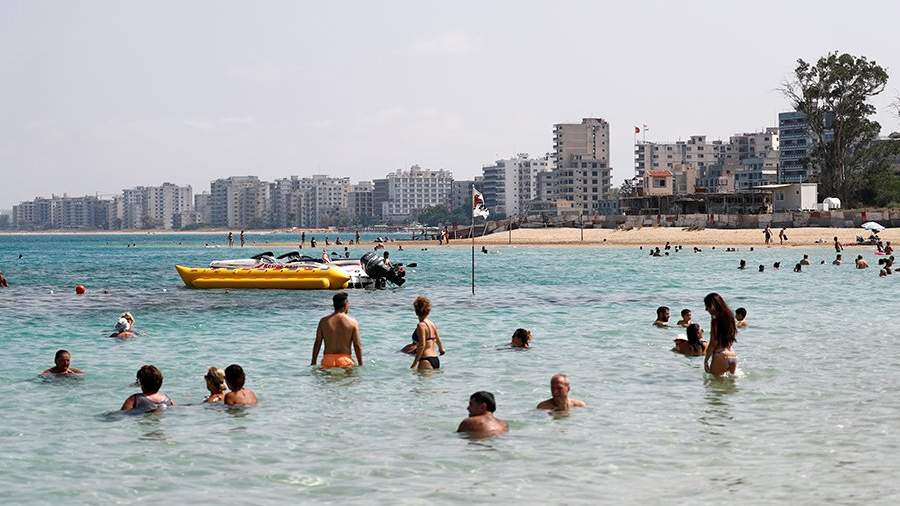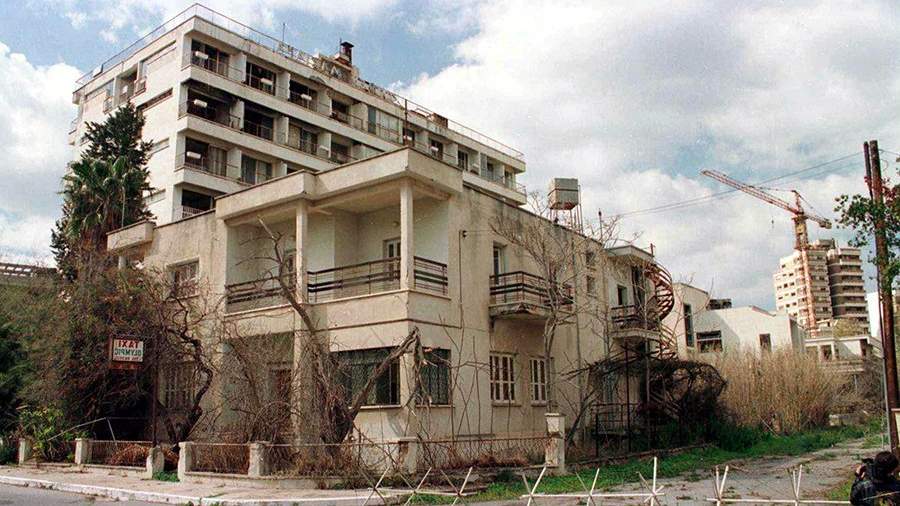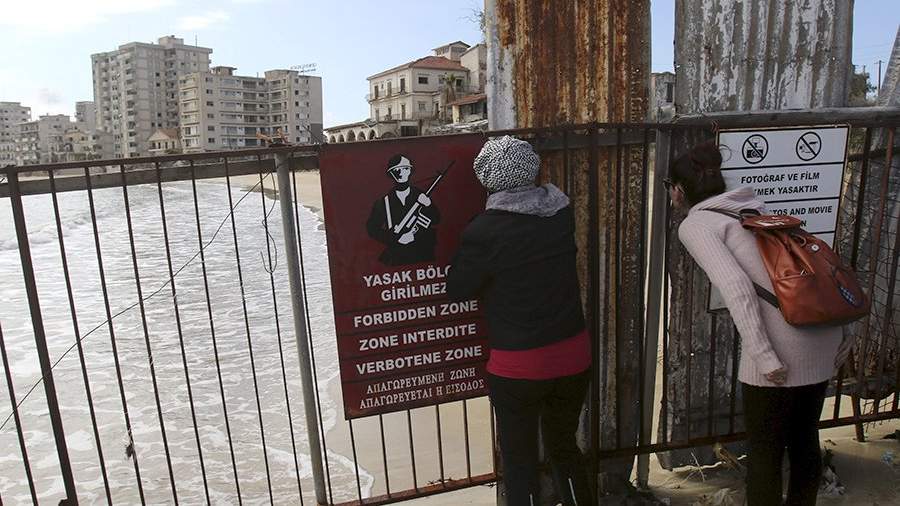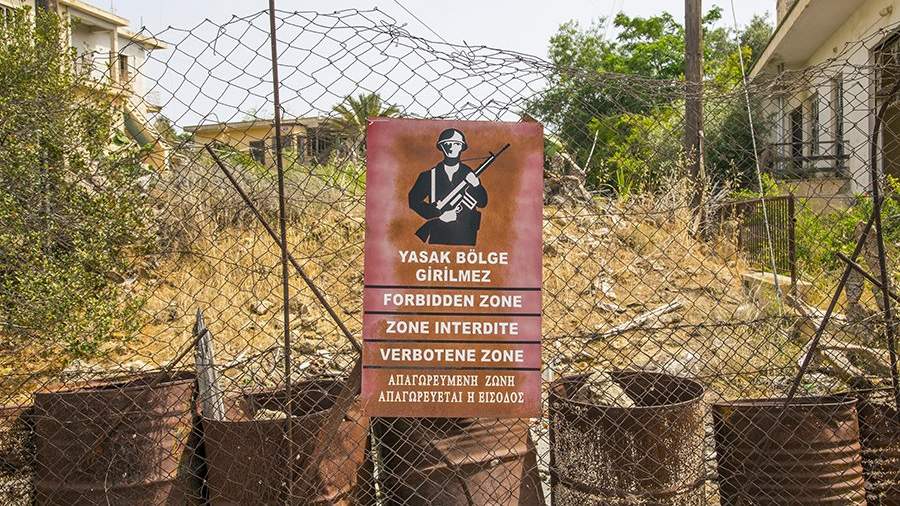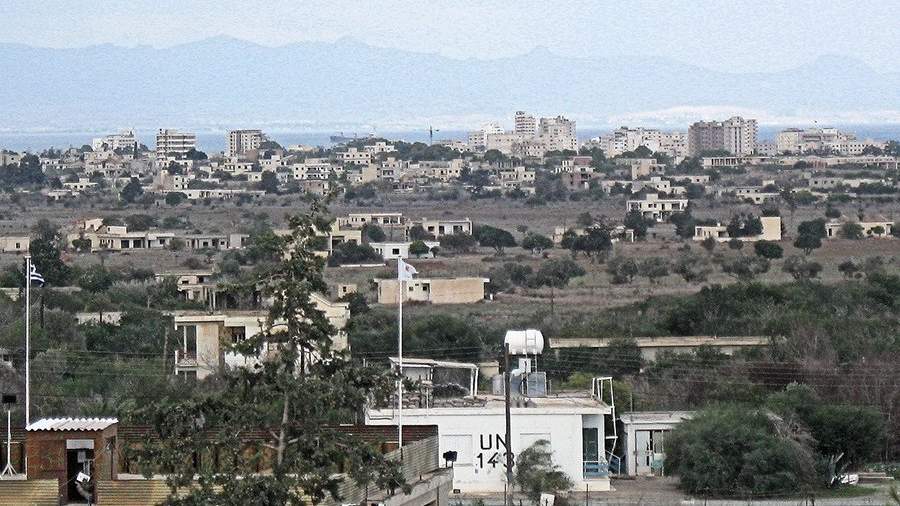A new stage begins in the confrontation between Turkey and Greece. The authorities of the unrecognized Turkish Republic of Northern Cyprus announced the partial opening of the Varosha resort area in Famagusta – a settlement that, after the Turkish occupation of Cyprus and the division of the island into two parts 46 years ago, was bombed and plundered, closed to the public and unofficially declared a “ghost town” … The TRNC took this step with the direct support of Turkey, the only state that recognized the sovereignty of Northern Cyprus. Izvestia understood why Tayyip Recep Erdogan is going to a new aggravation of relations with Athens, and at the same time with the European Union, where Ankara’s chances of joining it continue to approach zero.
The leadership of the unrecognized Turkish Republic of Northern Cyprus (TRNC) has announced a new step that jeopardizes the chances of resuming negotiations with the Republic of Cyprus on a settlement. From today, the authorities of the TRNC are opening access to the resort area of Varosha – a suburb of Famagusta, which 46 years ago, after the invasion of Cyprus by Turkish troops, was bombed and plundered, and later closed to the public. The UN Security Council adopted a number of resolutions, according to which only those residents who inhabited the city before 1974 can return to Varosha (in Turkish the name of the region sounds like Marash); the global organization also proposed transferring the area to the management of the United Nations.
Table Of Contents
With the direct participation of Turkey
According to sources from Reuters in Cyprus, the TRNC plan provides for the opening for residents of a strip of beach with a length of about one and a half kilometers. Currently, you can go there only to a 200-meter stretch of the beach, and the rest of the territory is surrounded by already rusted barbed wire and guarded by Turkish soldiers (the total number of the Turkish military contingent in the northern part of Cyprus is estimated at more than 30 thousand people). On the resumption of access to the territory adjacent to the coastline with an area of about 6 sq. km, where the once fashionable, but now abandoned hotels and residential buildings are located, is out of the question.
However, this is for now. The Prime Minister of the TRNC, Ersin Tatar, announced the partial opening of Varosha in Ankara at a joint press conference with President Recep Tayyip Erdogan. At the same time, the Turkish leader promised the TRNC authorities any support in their undertaking and made it clear that this is only the first step. “We hope that the entire Marash will be open for use after the completion of the current work and subject to respect for property rights,” Erdogan said in particular.
It is possible that the topic of Varosha was raised by the Turkish side in such a decisive manner in connection with the presidential elections in the TRNC, which will be held next Sunday. In any case, the official representative of the government of the Republic of Cyprus, Kiryakos Kousios, said that he “strongly condemns” this “pre-election stunt planned in Ankara.” Prime Minister Tatars, who announced the partial opening of Varosha, is one of the participants in the struggle for the post of president of the unrecognized republic. In any case, the current head of the TRNC, Mustafa Akinci, who is seeking re-election, said that Turkey’s participation in the situation in Varosha is interference in the election campaign in order to increase the Tatars’ chances of winning, writes AR. Akinchi himself says that the opening of Varosha should be carried out in accordance with UN decisions and international law.
The direct participation of Turkey in the decision on Varosha may have both economic and ideological underpinnings, admits Vladimir Avatkov, senior researcher at IMEMO RAN, associate professor at the Diplomatic Academy of the Russian Foreign Ministry. “Turkey instructs the leadership of Northern Cyprus on those actions that are beneficial to the Turkish Republic. In Ankara’s interests there may be an economic component – it is obvious who will build up this resort, – he believes. “But at the same time, we must remember that in the current foreign policy of Ankara, a significant place is given to promoting its own ideological and value project in the world, which, according to Turkey, should be followed by the economy. That is, if Turkey demonstrates support for certain states or those whom it considers states, then in the future, in her opinion, this will have a positive effect on the economy. That is, we are talking about ideological actions that can give economic results. “
“Unacceptable situation”
The outspoken provocative actions of the TRNC and Erdogan provoked a completely expected reaction from other interested players. Thus, the President of the Republic of Cyprus Nikos Anastasiades called these actions “a completely unacceptable situation.” EU High Representative for Foreign Affairs and Security Policy Josep Borrell said that Ankara’s plan is a “serious violation” of the UN-sponsored ceasefire agreement in Cyprus. “This will increase friction and make it difficult to reach agreements on a particularly difficult situation for all of us in the Eastern Mediterranean,” the diplomat added, speaking in the European Parliament on October 7, referring to the slightly stalled, but definitely far from resolution, conflict related to territorial disputes and rights to mining of natural resources on the shelf, the principal participants of which are Turkey and Greece with the Republic of Cyprus.
The Russian Foreign Ministry considers the decisions to open a part of Varosha unacceptable. “Unilateral actions that violate the previously adopted UN Security Council resolutions (…) create additional difficulties for the resumption of the negotiation process on the Cyprus problem. The Russian Federation, as a permanent member of the UN Security Council, remains committed to the settlement modalities approved by these resolutions and is ready to provide the necessary assistance in their implementation, ”the diplomatic department said in a commentary.
Smolenskaya Square also believes that an early restart of the talks “would create a constructive atmosphere conducive to finding a compromise, including on the Varosha issue.” True, the readiness of the Republic of Cyprus for such consultations in the light of recent events cannot be counted on.
Russian Foreign Minister Sergei Lavrov spoke about the need to resume the dialogue interrupted in 2017 during his September visit to Cyprus, timed to coincide with the 60th anniversary of the establishment of diplomatic relations. He assured that Moscow is ready to assist in establishing a dialogue with Turkey, but on condition that it is asked by regional players.
“Doesn’t see the light at the end of the tunnel”
Obviously, the Turkish decision on Varosha will clearly not contribute to the progress of negotiations on the republic’s accession to the European Union. In an annual report published on October 6, the European Commission noted that the Turkish government itself is destroying the national economy, rooting out democratic institutions and putting pressure on the judiciary and freedom of speech in the country. According to the EC, the reason for these problems is the excessively centralized system of power in the country, where the president is gaining more and more powers, writes Deutsche Welle. “Negotiations on Turkey’s (EU) accession, in fact, have reached an impasse,” the European Commission admits.
However, Turkey has been striving for the European Union for so long – and to no avail – that now it seems that this issue is clearly not being considered in Ankara as a priority. “Turkey has been knocking on European structures since the middle of the twentieth century and receiving refusals and promises – despite the fact that before the current ruling Justice and Development Party came to power, it complied with most of the requirements of the European Union, but it does not see the light at the end of the tunnel, – said Vladimir Avatkov, senior researcher at IMEMO RAN, in an interview with Izvestia. “And today Ankara is more likely to proceed from the assumption that the European Union should join Turkey than Turkey should join the EU.”
Moreover, he says, The negative reaction of the international community – in the person of the same European Union and the UN – does not interest Ankara too much. According to Avatkov, “Turkey as a whole acts in the world on the basis that it is a world power and everyone should follow its logic.”
Famagusta is rightfully considered one of the most mysterious Cypriot cities. Along with the name Famagusta, which has become entrenched in Western European languages, there is a Greek version – Ammochostos (“lost in the sands”) and Turkish – Gazimagusa. When Cyprus gained independence in 1960, Famagusta became an administrative center with two municipalities – Greek and Turkish. The city’s port was the busiest on the island. By the 70s, Famagusta had become the largest tourist center in the Mediterranean. And celebrities and Hollywood stars came to its resort area Varosha to have a good rest. Here both Elizabeth Taylor and Paul Newman relaxed. Famagusta’s population numbered 60 thousand people, and in the summer with tourists the figure reached 100 thousand. In July 1974, the ruling military junta in Greece organized a coup in Cyprus to annex the island. Turkey, in response, under the pretext of restoring order, landed troops in Cyprus, but in the end it simply occupied the northern part of the island. Soon the military regime in Athens fell, and a ceasefire was declared in Cyprus. Nevertheless, on August 14, a Turkish landing arrived in Famagusta, Varosha was bombed. Residents were given a day to leave the city. The area was then surrounded by a barbed wire fence and guarded, since then it has been closed to the public. Violators face fines. UN peacekeepers and the Turkish military have access there.
